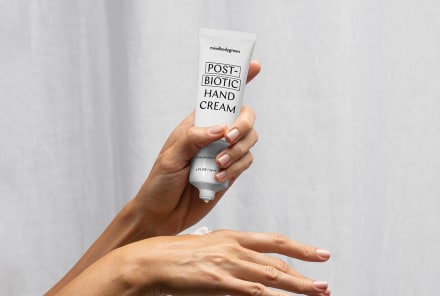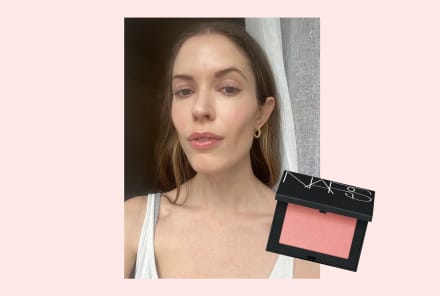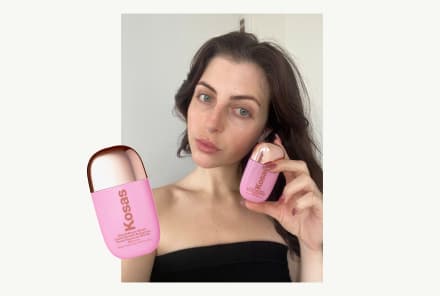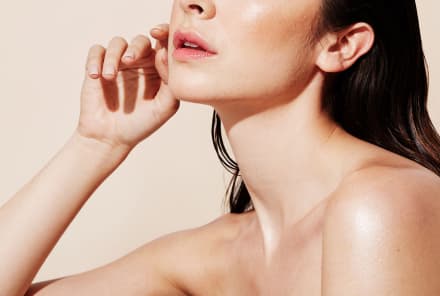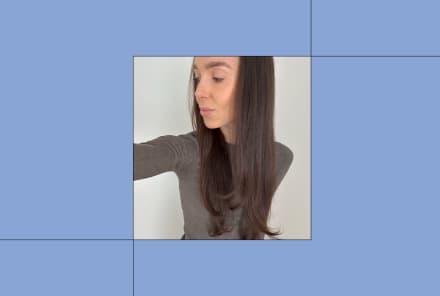Advertisement
Why Your Shampoo & Conditioner Will Eventually Stop Working

We know that our bodies build up a "tolerance" to certain things over time—caffeine, for example—rendering them less effective unless the dosage is increased. So, does the same thing happen with our beauty products? If we're using something every single day, does our body eventually need more or something different to get the same results as at the start?
As a haircare professional, I'm constantly asked why shampoo and conditioner seems to stop functioning after a few weeks or months. The questions I always get is, "Can my shampoo and conditioner ever really stop doing its job?"
Why we feel hair care products start working overtime.
Maybe you’ve been using the same shampoo and conditioner for a while now. It started off incredible, like a new romance. Your hair was full, bouncy, voluminous, soft, and conditioned. You were having amazing hair days every single day. People stopped you on the street to ask what you were using to make your hair so shiny, and you wanted to shout the name of your products from the rooftops. You were in love (with your hair care)!
But then one day you woke up and your hair was suddenly flat, dull, dry, and prone to breakage. What was going on?! Was your shampoo partner ghosting? So you change up your shampoo and conditioner to see if you can find a new magic tonic. You try a few different brands and nothing really changes, so you settle for something that kind of makes your hair feel good. After all, the stuff you loved so much at first has obviously become ineffective, so this new product must be better than nothing, right?
But here's the thing: What “works” doesn’t stop benefiting your hair if it truly worked in the first place.
Here's actually why certain products become less effective.
Some synthetic products can very much appear to change hair for the better, but only short term. When using synthetic chemical shampoos and conditioners, the results can be wonderful at first because they're great at "tricking" the hair, if for a brief moment. Temporarily smoothing and coating with silicones makes the hair appear shiny and healthy, but the miraculous effects are misleading and don't contribute to long-term hair and scalp health.
Here, the major culprits.
Silicones.
What is a silicone, you ask? And where does it come from? It’s a man-made oil created in a laboratory. Most are water insoluble, so they build up on the hair, forming a plastic-like barrier because you can't wash 'em out. Over time, silicone (watch out for common silicone derivatives like dimethicone and other ingredients ending in -cone) builds up on hair and actually causes breakage. The very thing that gives it allure—making hair appear shiny and smooth—is actually what damages the hair in the end.
See, silicones make it impossible for your strands to absorb proper moisture later (like in the shower or when you apply a hydrating cream). Just like your body, when adequate moisture isn't available, your hair becomes dehydrated and, coupled with the buildup of proteins, minerals, and other ingredients—well, snap! The hair that once looked so lush and shiny starts to break.
But it's also healthy to consider not only how everything works or doesn't, but also how it can affect your body, animals, marine life, and the planet. In addition to being water insoluble, silicones aren't biodegradable, which means they wash down your drain and into the water supply, oceans, lakes, and rivers.
Sulfates.
Another issue with shampoos: While they may appear to give your roots lift, lift off heavy buildup, and make strands appear refreshed, they can strip your scalp its much needed oils. When the scalp has also been stripped of its natural oils from harsh foaming agents like sulfates and is no longer responding to the synthetic softeners for replenishment.
Not to mention, this can throw your scalp out of whack and you may begin to produce more sebum that you did in the first place. This happens for the same reason it may on the face: When your skin thinks it's dry, it goes into oil overdrive.
Synthetic enhancers.
Artificial fragrance, synthetic penetration enhancers, synthetic chemical softeners and emulsifiers leave chemical residue on your hair and scalp that can lead to countless issues. Your hair can't breathe or absorb moisture or get its shine on because it's literally suffocating underneath chemical agents.
What to do when you suspect your hair care is doing more harm than good.
Now, listen, I'm not going to preach about how "bad" silicones and other synthetic chemicals are for your hair. If you've found a shampoo and conditioner that's really working for you, do your thing. Following your instincts when it comes to self-care is healthy.
Well-formulated, natural shampoos and conditioners work differently from synthetic chemical formulations (and are better for the planet). Natural ingredients are gentle and intelligent. Pure, clean, skillfully formulated products don’t rely on synthetic chemical softening and absorption. They work in natural alignment with the body; it’s a "bio-match."
Plant oils and essences have distinct molecular similarities to the oils of the body, allowing them to work together naturally, and whole plants have an incredible ability to adapt to the body’s needs at any specific time.
The takeaway.
And to answer the initial question: Yes, your shampoo and condition can stop "working," but it's only because they weren't really working in the first place.
Watch Next
Enjoy some of our favorite clips from classes
Enjoy some of our favorite clips from classes
What Is Meditation?
Mindfulness/Spirituality | Light Watkins
Box Breathing
Mindfulness/Spirituality | Gwen Dittmar
What Breathwork Can Address
Mindfulness/Spirituality | Gwen Dittmar
The 8 Limbs of Yoga - What is Asana?
Yoga | Caley Alyssa
Two Standing Postures to Open Up Tight Hips
Yoga | Caley Alyssa
How Plants Can Optimize Athletic Performance
Nutrition | Rich Roll
What to Eat Before a Workout
Nutrition | Rich Roll
How Ayurveda Helps Us Navigate Modern Life
Nutrition | Sahara Rose
Messages About Love & Relationships
Love & Relationships | Esther Perel
Love Languages
Love & Relationships | Esther Perel
